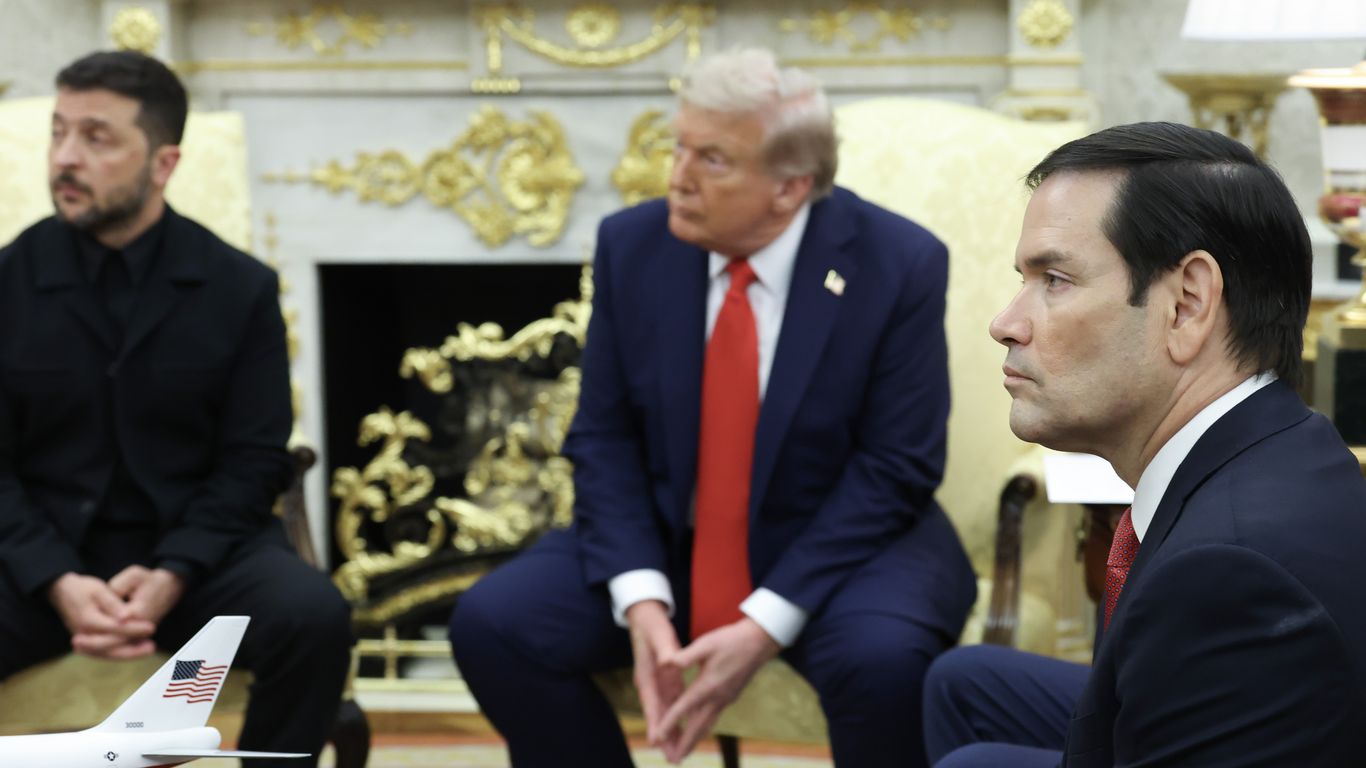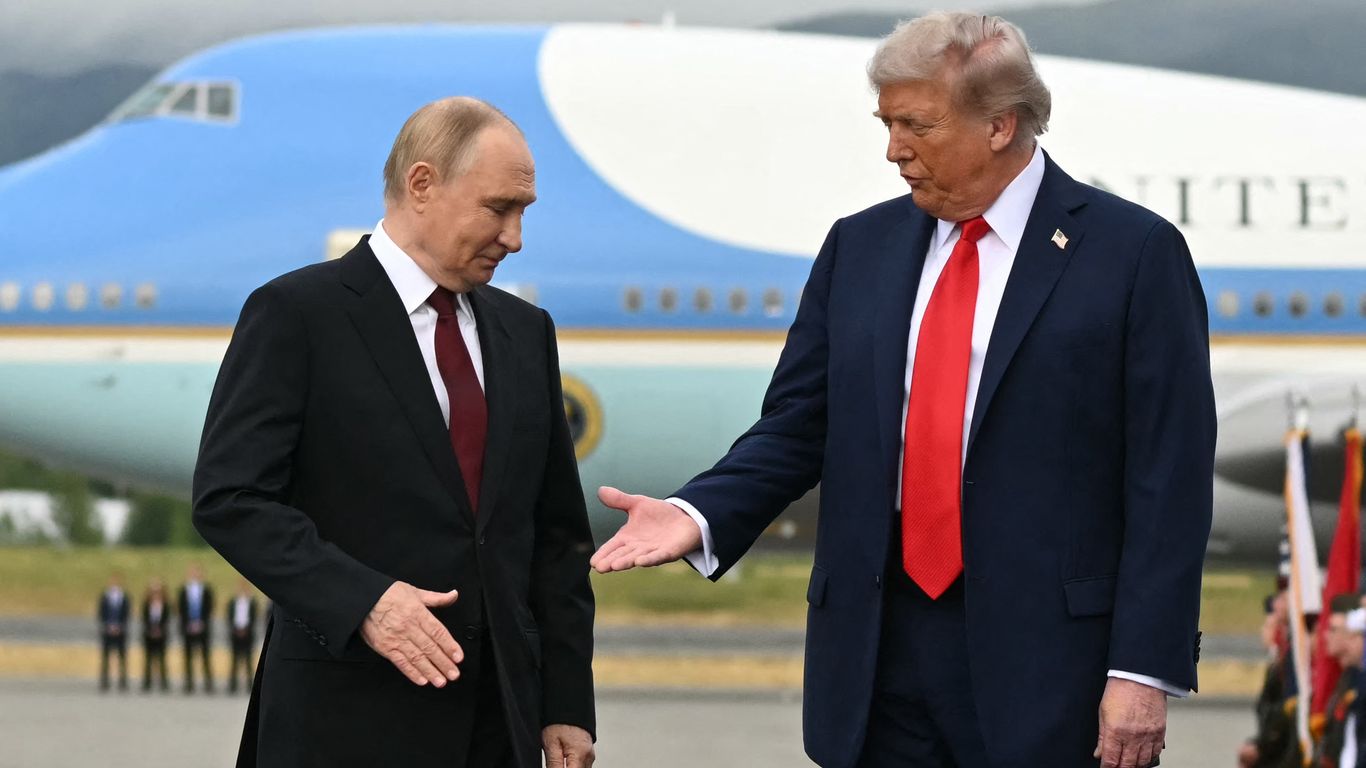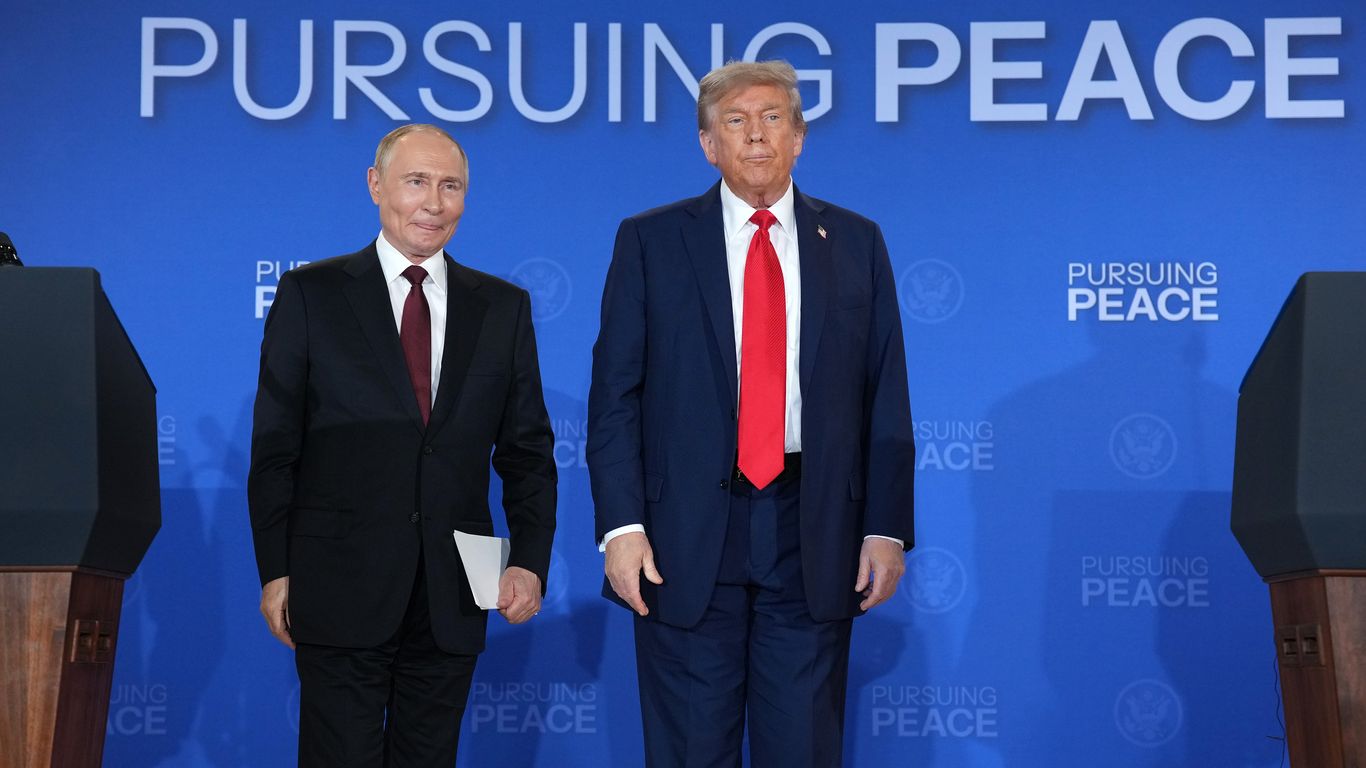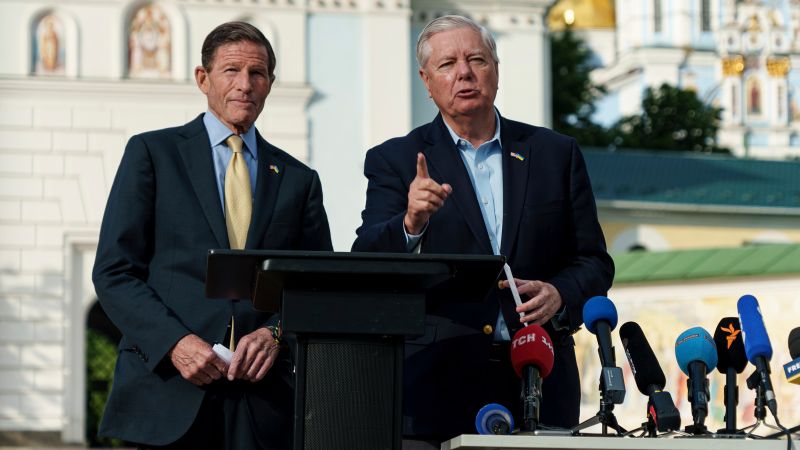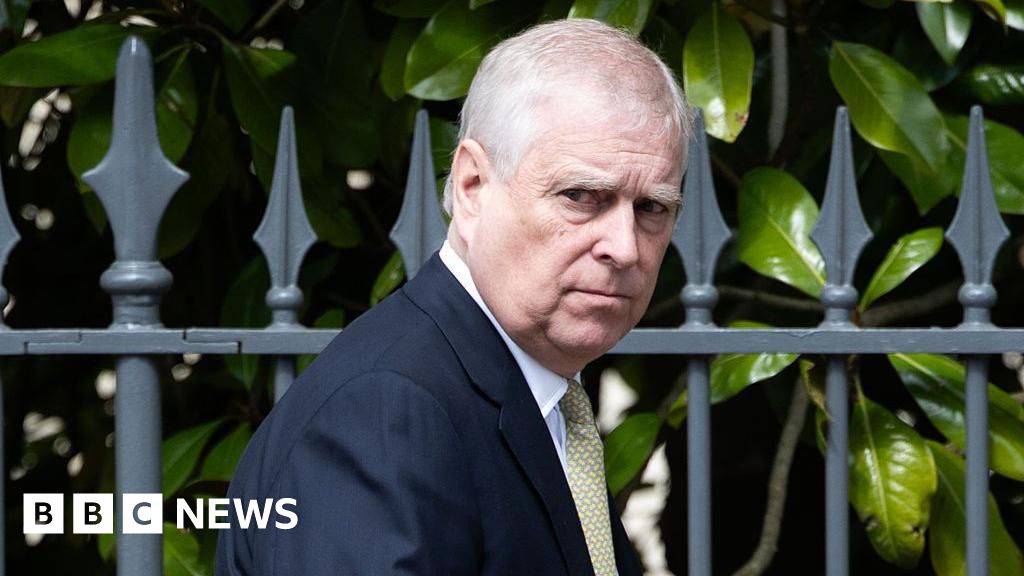Russia Concessions in Ukraine Talks
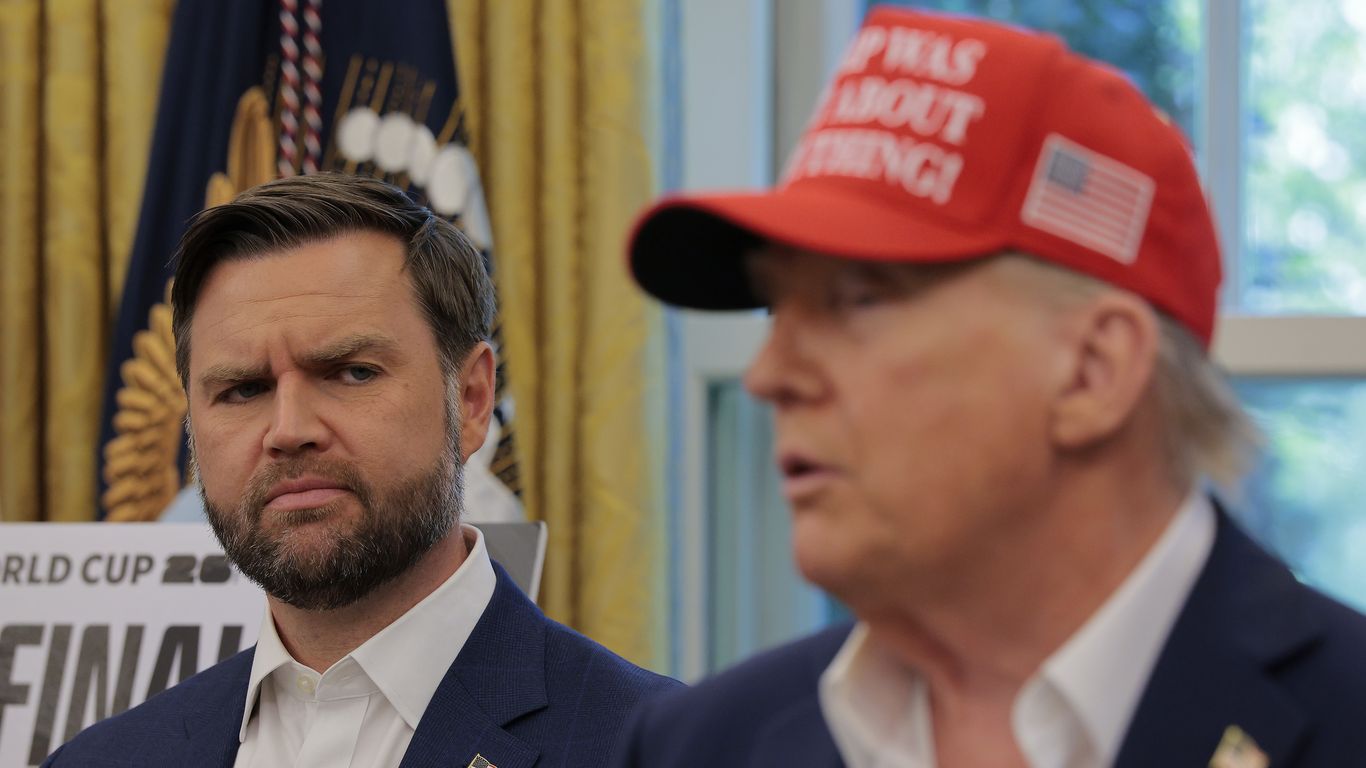
Introduction
According to Manhattan District Attorney Cyrus Vance, Russia has made "significant concessions" to President Trump in the ongoing Ukraine talks. This comes as tensions between the two countries continue to escalate, with the United States imposing sanctions on Russia for its involvement in the 2016 election and annexation of Crimea.
Key Details
In an interview with NBC News, Vance stated that imposing sanctions on Russia "aren't off the table" as the country continues to interfere in American politics. He also added that Russia's alleged interference in the 2020 election remains a top concern for the US government.
This development comes as the Trump administration has been criticized for its close relationship with Russian President Vladimir Putin. Critics argue that this relationship has resulted in a lack of action against Russia's aggressive actions.
Impact
These recent comments from Vance highlight the ongoing tensions between the US and Russia and the potential impact on the upcoming 2020 election. It also raises concerns about the extent of Russia's influence on American politics and the need for further action to protect the country's democratic process.
As the Ukraine talks continue, it is crucial for the US to maintain a strong stance against Russian aggression and interference. The outcome of these talks could have significant implications for the relationship between the two countries and the global political landscape.
About the People Mentioned
Donald Trump
Donald John Trump, born June 14, 1946, in Queens, New York, is an American businessman, media personality, and politician. He graduated from the University of Pennsylvania’s Wharton School in 1968 with a degree in economics. In 1971, he took over his family’s real estate business, renaming it the Trump Organization, through which he expanded into building and managing skyscrapers, hotels, casinos, and golf courses. Trump gained widespread fame as the host of the reality TV show *The Apprentice* from 2004 to 2015, which helped establish his public persona as a successful entrepreneur. Trump entered politics as a Republican and was elected the 45th president of the United States, serving from 2017 to 2021. His presidency was marked by significant policy actions including tax cuts, deregulation, the appointment of three Supreme Court justices, renegotiation of trade agreements (notably replacing NAFTA with the USMCA), and a focus on immigration control including border wall expansion. He withdrew the U.S. from international agreements such as the Paris Climate Accord and the Iran nuclear deal, and engaged in a trade war with China. His administration’s response to the COVID-19 pandemic was criticized for downplaying the virus’s severity. Trump was impeached twice by the House of Representatives—first in 2019 for abuse of power and obstruction, and again in 2021 for incitement of insurrection—but was acquitted by the Senate both times. After losing the 2020 election to Joe Biden, Trump challenged the results, culminating in the January 6, 2021, Capitol riot. He remains a central figure in American politics, having won the 2024 presidential election and returned as the 47th president in 2025, continuing to promote policies aimed at economic growth, border security, and military strength[1][2][3][4].
Vladimir Putin
Vladimir Putin is the current President of Russia, a position he has held for multiple terms since 2000, with a brief interlude as Prime Minister from 2008 to 2012[1][3]. Born in Leningrad (now Saint Petersburg) in 1952, Putin began his career in the Soviet Union’s security services, joining the KGB in 1975 and rising to the rank of Lieutenant Colonel by the time he left in 1991, following postings in East Germany and Leningrad[4]. After the Soviet Union’s collapse, he transitioned into politics, serving as an adviser to Saint Petersburg Mayor Anatoly Sobchak and later moving to Moscow, where he held various administrative roles under President Boris Yeltsin[6]. Putin was appointed Prime Minister in August 1999 and became acting President when Yeltsin unexpectedly resigned that December[3][6]. He won his first presidential election in March 2000, promising to stabilize Russia’s economy and political system after the tumultuous 1990s[3][7]. During his initial terms, he centralized power, reasserted federal control over Russia’s regions, and curtailed the influence of the country’s oligarchs through legal and economic measures[7]. Putin was re-elected in 2004 but, due to constitutional term limits, stepped aside in 2008, becoming Prime Minister under his successor Dmitry Medvedev, while retaining significant influence[3]. Constitutional amendments later extended presidential terms, and Putin returned to the presidency in 2012[1]. Putin’s time in office has been marked by assertive foreign policy, including military interventions in Syria in support of President Bashar al-Assad and the 2014 annexation of Crimea, which led to international sanctions[1]. Domestically, his tenure has seen increased state control over media, the suppression of political opposition, and constitutional changes consolidating executive authority[1]. In 2022, Russia’s full-scale invasion of Ukraine triggered a major international crisis, further isolating Russia from the West and prompting widespread condemnation[1]. As of 2025, Putin remains a dominant figure in Russian politics, having secured another term in office through constitutional changes that allow him to potentially remain president until 2036[1]. His leadership continues to shape Russia’s domestic trajectory and its role in global affairs, amid ongoing conflict in Ukraine and strained relations with NATO and Western countries[1].
About the Organizations Mentioned
Manhattan District Attorney
## Overview The Manhattan District Attorney’s Office, officially the Office of the District Attorney of New York County, is the principal prosecutorial authority for Manhattan, responsible for upholding New York state law within the borough[1][3]. Federal crimes in Manhattan, however, are handled by the U.S. Attorney for the Southern District of New York[1]. The office is led by Alvin Bragg, who took office in January 2022 after being elected in 2021[1][10]. The organization operates from the New York County Criminal Courthouse at 1 Hogan Place (100 Centre Street) and the Louis J. Lefkowitz State Office Building at 80 Centre Street (141 Worth Street)[1]. ## Functions and Structure The Manhattan District Attorney’s Office prosecutes a wide range of criminal offenses, from misdemeanors to complex white-collar and organized crime cases[2][3]. Its legal work is divided into three main divisions: Trial, Investigation, and Appeals[2][3]. The Trial Division handles the bulk of criminal prosecutions, while the Investigation Division focuses on proactive investigations into economic crimes, corruption, and organized crime. The Appeals Division ensures convictions are upheld through rigorous legal analysis and advocacy[2]. Specialized units include the Hate Crimes Unit, which aggressively prosecutes bias-motivated offenses and engages with community groups, and the Cybercrime and Identity Theft Bureau, which tackles high-tech crimes using digital forensics and cyber analysts[4]. The office is also known for innovative public safety initiatives, such as community engagement programs and partnerships with law enforcement[3][4]. ## Historical Highlights The office has a storied history dating to the early 19th century, with the first elected District Attorney, John McKeon, taking office in 1847[6]. Since the 1930s, only five individuals have held the office, each leaving a significant mark: Thomas E. Dewey (1938–1941), famed fo
United States
The **United States** is a federal republic and a global superpower, playing a leading role in economics, military strength, technology, and governance. It is a nation of approximately 348 million people as of 2025, characterized by its diverse population and dynamic economy[8][6]. Founded in 1776 following independence from British rule, the U.S. rapidly evolved into a major world power, especially after World War II, when its technological and economic investments solidified its global dominance[4]. Today, it remains the world’s preeminent military power, with 76% of Americans recognizing this status, while about half view it as the leading economic power globally, though China is seen as a rising competitor[2][3]. The U.S. government operates through a complex system that manages federal finances, taxation, social welfare programs, and trade policies. Recent legislative changes, such as the 2017 Tax Cuts and Jobs Act and the 2025 One Big Beautiful Bill Act, have shaped the tax landscape to influence economic growth, labor markets, and federal revenue[1]. Despite challenges like rising federal deficits projected to reach 6.9% of GDP by 2027, consumer spending remains resilient, and business investment is expected to grow steadily in 2025[5]. In governance, the U.S. is rated "Free" with a score of 84/100 by Freedom House, though concerns about democratic erosion and partisan conflicts persist[6]. Public trust and satisfaction with government services fluctuate, reflecting ongoing debates about policy effectiveness and institutional competence[7]. Technologically, the U.S. maintains a critical edge, underpinning its economic and geopolitical power. Experts warn, however, that technological dominance is not guaranteed indefinitely, emphasizing the need for adaptive policies and international cooperation to sustain leadership in innovation and global affairs[4]. Overall, the United States remains a pivotal force in global business, technology, and politics, balancing historic strengths with contemporary challenges in

